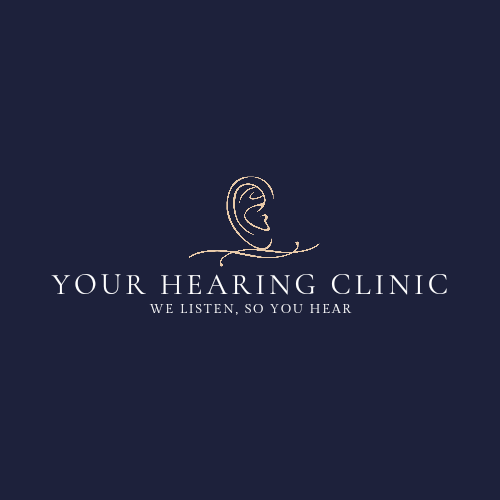How to Enhance Communication with Hearing Aid Users: Expert Tips for Effective Interaction
- Your Hearing Clinic
- Feb 25, 2025
- 3 min read
Engaging in meaningful conversations is vital in our everyday lives, yet it can become challenging when communicating with individuals who use hearing aids. Hearing loss can affect not just the ability to hear, but also relationships and social interactions. By understanding the specific needs of hearing aid users, we can improve the quality of our conversations. Here are expert tips designed to enhance communication.
Understand Hearing Aids and Their Functions
Before talking with a hearing aid user, it’s helpful to learn the basics of how hearing aids work. These devices amplify sounds and often come equipped with features like directional microphones and noise reduction settings. Having this knowledge helps you be more aware of the user's environment.
Hearing aids vary widely. For instance, nearly 60% of users report difficulties in environments with background noise, while others struggle to hear high-frequency sounds. Acknowledging these differences allows you to adapt your communication style to better suit their individual needs.
Maintain Eye Contact
Consistent eye contact is essential for effective communication. This practice engages the individual and aids in understanding both verbal and non-verbal cues like facial expressions and lip movements. If you frequently look away or turn your back, it becomes harder for the person to follow the conversation.
Position yourself so they can clearly see your face. Studies show that individuals who rely on lip-reading benefit greatly from being able to see facial cues clearly.
Speak Clearly and Naturally
When conversing with someone using a hearing aid, speak at a normal volume—there's no need to shout. Straining your voice can distort sounds, making it more challenging for them to comprehend.
Choose simple language and avoid jargon. For example, instead of saying "I am elated to meet you," say "I am happy to meet you." Pausing briefly between sentences allows listeners time to process information.
Eliminate Background Noise
Background noise can significantly interfere with communication. Choose quiet locations whenever possible. Research shows that 70% of hearing aid users find background noise to be one of the most challenging aspects of listening. Avoid areas with loud music or heavy crowds, which can complicate interactions.
If there’s unavoidable noise, find ways to minimise it. Position yourself away from distractions, and make sure your voice can dominate over chatter or other sounds.
Use Visual Cues
Non-verbal communication is a powerful tool for enhancing understanding. Use gestures, facial expressions, and body language to reinforce your message. Written communication can also play a role—consider taking notes or displaying key points on a screen when necessary.
For example, in a meeting or busy environment, texting essential details can ensure your message is received clearly. These strategies strengthen your ability to communicate effectively.
Be Patient and Open to Clarification
Patience is key in effective communication. If someone asks you to repeat information, respond calmly. They may have missed specific words, so restating your message can improve clarity.
Encourage them to share when they are having difficulty. Being receptive to their needs creates a supportive atmosphere and enhances the quality of the interaction.
Respect Their Preferences
Every hearing aid user is unique. Some might prefer spoken conversations, while others might feel comfortable using written communication . Adjust your communication style based on the individual’s preferences.
A simple question like, "What works best for you?" can show that you respect their needs. This effort fosters a positive communication experience that makes them feel valued.
Create a Comfortable Environment
A welcoming atmosphere can enhance communication quality. Ensure that there is sufficient lighting so the person can see you clearly. Arrange seating to promote face-to-face engagement, avoiding places with harsh backlighting that create shadows.
Furthermore, strive to maintain a distraction-free environment to enable more impactful conversations. Research indicates that a comfortable setting can increase focus and understanding during discussions.
Develop Awareness of Communication Technology
Knowing various communication technologies can improve interactions with hearing aid users. For example, many modern hearing aids connect to smartphones, enhancing the user experience.
If the person you're communicating with has a smart hearing aid, ask about it. Familiarity with such features allows you to adapt your conversation techniques accordingly, leading to smoother exchanges.
Summary of Effective Communication Tips
Enhancing communication with hearing aid users is essential for fostering relationships and understanding. Focus on these core strategies:
Understand hearing aids and their functions.
Maintain eye contact for better comprehension.
Speak clearly and avoid complex language.
Minimize background noise during conversations.
Use visual cues and written communication when needed.
Show patience and be open to clarifications.
Respect individual preferences and adjust your approach.
Create a comfortable, distraction-free environment.
Be aware of communication technology related to hearing aids.
By applying these techniques, not only will your communication skills improve, but you will also make a meaningful impact in the lives of hearing aid users. Let's work towards a world where everyone can communicate effectively.

.png)




Comments